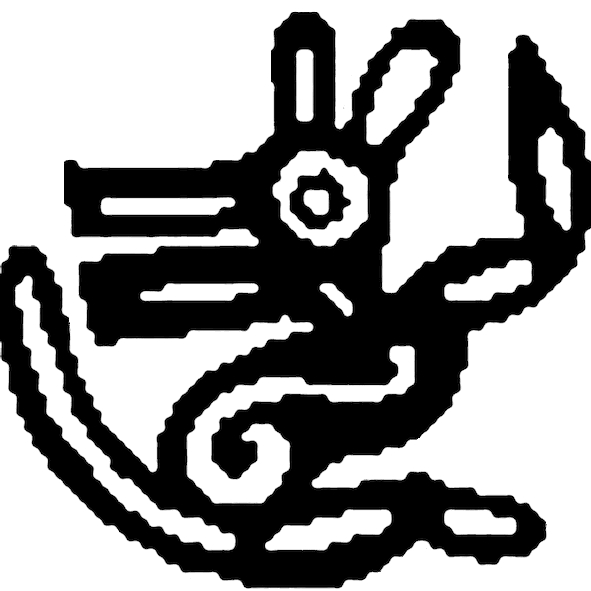オリヴァー・サックスの世界
All
about of Oliver Sacks
(1933-2015)
池田光穂
緒言(→このシラバスは実際には実現しなかったものですが、僕の授業を制限させた意外と頭の頑迷な若手教員たちの思惑とはちがい「わくわく」しませんか?)
本講義(ゼミナール)では、メディカル・ジャーナリズムの基礎の修得を目指し、オリバー・サックスの複数の作品の精読を通して、医療情報をどの
ように正確に伝えるのという課題や問題点について考える。また、課題レポートの作成を通して、メディカル・リテラシーに供するライティング能力を身につけ
る(シラバスを最初に書いた時には英語による授業を計画していました)。
シラバス項目(→2018年度COデザインセンターの授業シラバスとして設計されましたが、当時の教務室会議より、COデザイン科目としてふさ わしいくないとの判断を受け、リアルな授業科目として認められませんでした。ヴァーチャル科目として「開講(みなさんと邂逅)」します!)
☆︎レナード・L (1920-1981)の記録▶︎火星の人類学者の方法論入門▶︎︎▶︎▶︎︎▶︎▶︎︎▶︎▶︎︎▶︎▶︎
| 授業担当者:池田光穂(Mitsuho
Ikeda) |
池田光穂(Mitsuho
Ikeda) |
| 履修対象/Eligibility |
コミュニケーションデザイン科目(学部
3年以上、大学 院生) |
| 開講時期/Schedule |
(未定) |
| 講義室/Room |
(未定) Why the Brain Loves Music, Dr. Oliver Sacks, Columbia University サックスさんをしらない方はまず動画をごらんください(「ミュージコフィリア」関連で す) |
| 講義題目/Course Name |
訪問術(体験型ジャーナリズム入門「オ
リヴァー・サックスの世界」) |
| 授業の目的と概要/Course
Objective |
本
講義では、体験型・ルポルタージュ・ジャーナリズムの基礎の修得を目指し、オリバー・サックスの複数の作品の精読を通し
て、体験型ジャーナリズム取材にもと
づく情報をどのように正確に伝えるのという課題や問題点について考える。また、課題レポートの作成を通して、ゴンゾ—・ライティングの意味についても考え
る。途中で、ドキュメンタリー映像作家のマイケル・ムーアの作品の観賞も加え て体験型ジャーナリズムがもつ独特のエートスについても学ぶ。 |
| 学習目標/Learning Goals |
1.同じ授業担当者が講じる「訪問術A
(質的研究のデザインA)」などの方法を無視して、いきなり対象者に肉薄するゴンゾー調査法(Gonzo
method)の意味を理解し、その方法論の可能性と限界について考えることができる——すくなくとも君の友人や家族などの親しい人たちに、君自身の言葉
でこの調査法について「熱く」語ることができるようになる。 2.「体験的科学ジャーナリズムの魅力」を遺憾なく発揮している当代きっての医学ジャーナリストであったオリバー・サックスの著作などの読解を通して、彼 の方法 について分析し、それを我々も会得できるかどうかについて検証する(→「リヴァース・エンジニアリング・リーディング(逆行工学的読書)」)。 3.ゴンゾー・ライティングの魅力は誰にでもその方法の可能性が開かれて いることである。分析できたゴンゾー・メソッドを通して、実際にミニ・レポートを 書いてみよう!(必ずしもフィールドワークやインタビューが必須ではなく[想像の/サイバー上のフィールドワークという言葉が あるように]文献やサイバー探検だけでも可能) |
| 履修条件・受講条件
/Requirement; Prerequisite |
履修対象に該当する者であればどなたで
も受講できます。経験者や学位論文作成のために社会調査研究に携わったことのある学生・院生は、未経験の受講者と共に学ぶことで、個人的知恵を伝授し共有
することができるために多いに推奨します。 |
| 特記事項/Special Note |
シラバスをみていただき、事前にテーマ
を想像されたり、情報を入手しておくと、学習意欲向上のインセンティブになると思います。 |
| 授業計画/Special
Plan (回)題目/Title:内容/Content |
Source: https://ci.nii.ac.jp/ncid/BB25316049 In The Man Who Mistook His Wife for a Hat, neurologist Oliver Sacks looked at the cutting-edge work taking place in his field, and decided that much of it was not fit for purpose. Sacks found it hard to understand why most doctors adopted a mechanical and impersonal approach to their patients, and opened his mind to new ways to treat people with neurological disorders. He explored the question of deciding what such new ways might be by deploying his formidable creative thinking skills. Sacks felt the issues at the heart of patient care needed redefining, because the way they were being dealt with hurt not only patients, but practitioners too. They limited a physician's capacity to understand and then treat a patient's condition. To highlight the issue, Sacks wrote the stories of 24 patients and their neurological clinical conditions. In the process, he rebelled against traditional methodology by focusing on his patients' subjective experiences. Sacks did not only write about his patients in original ways - he attempt to come up with creative ways of treating them as well. At root, his method was to try to help each person individually, with the core aim of finding meaning and a sense of identity despite, or even thanks to, the patients' condition. Sacks thus redefined the issue of neurological work in a new way, and his ideas were so influential that they heralded the arrival of a broader movement - narrative medicine - that placed stronger emphasis on listening to and incorporating patients' experiences and insights into their care. Ways in to the text Who was Oliver Sacks? What does The Man Who Mistook His Wife for a Hat Say? Why does The Man Who Mistook His Wife for a Hat Matter? Section 1: Influences Module 1: The Author and the Historical Context Module 2: Academic Context Module 3: The Problem Module 4: The Author's Contribution Section 2: Ideas Module 5: Main Ideas Module 6: Secondary Ideas Module 7: Achievement Module 8: Place in the Author's Work Section 3: Impact Module 9: The First Responses Module 10: The Evolving Debate Module 11: Impact and Influence Today Module 12: Where Next? Glossary of Terms People Mentioned in the Text Works Cited |
| 授業形態/Type of Class: |
レクチャー、質疑応答、討論、問題提示
とそれにもとづく議論 |
| 授業外における学習
/Independent Study Outside of Class |
資料の事前読解にもとづく予習と、電子
メールあるいはSNSによるヴァーチャルな討論。 |
| 教科書・教材/Textbooks |
|
| 参考文献/Reference |
インターネット情報(体験型ジャーナリ ズム入門(訪問術)2018→[https://goo.gl/v5w8Hp]) 他、配布資料など。 |
| 成績評価/Grading Policy |
習者の各回の自己評価(ポートフォリ
オ分析)の積算(50%)と教師による観察評価(平常点を含む50%) |
| コメント/Other Remarks |
私のサックスとの関わりに関する情報で
す→「他者の痛み(苦悩)を理解すること」 |
| キーワード/Keywords |
体験型ジャーナリズム、ルポルター
ジュ、ドキュメンタリー、突撃取材、ライター、民族誌(エスノグラフィー)、オリヴァー・サックス |
| 受講生へのメッセージ/Messages
to Prospective Students |
皆さんの先生方が、克己してスマホ(や
電子辞書)に齧りつき禁欲的に勉強する時代は終わりました。今日の大学院の勉強は、スマートに楽しく学ぶことが、もっとも重要な課題になりました。知識と
情報
収集に使う労力がインターネットによって節約された分、皆さんの知的情熱は、領域を超えた同学の士どうしによる楽しく深い議論を生み出すほうに投入しま
しょう! |
●サックス著作
Copyleft, CC, Mitzub'ixi Quq Chi'j, 1996-2099
All about of Oliver Sacks (1933-2015)


++
Copyleft,
CC, Mitzub'ixi Quq Chi'j, 1996-2099